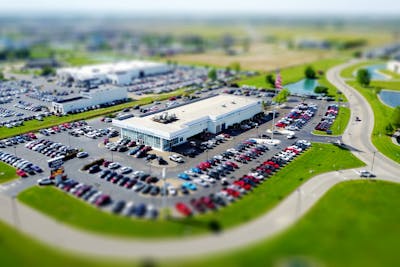How to choose the Best Small Business POS Systems


Table of Contents
Introduction
Choosing the right point of sale (POS) system for your small business is a critical decision that can significantly impact your operations, customer service, and overall success. With numerous options available, it can be overwhelming to determine which system is the best fit for your needs. This guide will help you navigate the process by outlining essential features, considerations, and recommendations for selecting the best small business POS systems.
Understanding POS Systems
A point of sale system is a combination of hardware and software that allows businesses to process sales transactions. It typically includes a register, a card reader, and software that tracks sales, inventory, and customer data. For small businesses, a good POS system can streamline operations, improve customer service, and provide valuable insights into sales trends.
Key Features to Look For in Best Small Business POS Systems
When evaluating different POS systems, consider the following features that are crucial for small business operations:
1. Ease of Use
A user-friendly interface is essential, especially if you have employees who will be using the system. Look for a POS that offers intuitive navigation and straightforward setup to minimize training time.
2. Payment Processing Options
Ensure that the POS system supports various payment methods, including credit and debit cards, mobile payments, and contactless options. This flexibility can enhance customer satisfaction and increase sales.
3. Inventory Management
Effective inventory management is vital for small businesses, particularly in retail and food service. Choose a POS that allows you to track stock levels, manage orders, and receive alerts when items are running low.
4. Reporting and Analytics
Access to detailed sales reports and analytics can help you understand your business performance. Look for a system that provides insights into sales trends, customer behaviour, and inventory turnover.
5. Customer Support
Reliable customer support is crucial, especially during the initial setup and any troubleshooting that may arise. Opt for a POS provider that offers multiple support channels, including phone, chat, and email.
6. Integration Capabilities
Consider whether the POS system can integrate with other software you use, such as accounting tools, e-commerce platforms, or marketing solutions. This integration can streamline your operations and reduce manual data entry.
7. Cost
Evaluate the total cost of ownership, including monthly fees, transaction fees, and hardware costs. Some systems offer free basic versions, while others may require a subscription. Be sure to compare these costs against the features provided.
Types of POS Systems
Different types of POS systems cater to various business needs. Here are a few common categories:
1. Traditional POS Systems
These are typically installed on-site and require specific hardware. They are suitable for brick-and-mortar stores that primarily conduct in-person transactions.
2. Mobile POS Systems
Mobile POS systems allow businesses to process transactions anywhere, making them ideal for food trucks, pop-up shops, and outdoor events. They usually operate on tablets or smartphones.
3. Cloud-Based POS Systems good POS system for small business
Cloud-based systems store data online, allowing business owners to access their information from any device with internet connectivity. This flexibility is beneficial for businesses with multiple locations or those that require remote access.
Top Recommendations for Small Business POS Systems
Based on extensive research and user feedback, here are some of the best POS systems for small businesses:
Square is often hailed as the best POS system for small businesses due to its user-friendly interface and free basic version. It offers essential features such as inventory management, sales tracking, and customer profiles. Square also supports various payment methods, making it a versatile choice for retailers and service providers alike.
For small restaurants, Toast is a standout option. It is designed specifically for the food service industry and includes features such as table management, menu customization, and online ordering. Toast’s robust reporting tools provide valuable insights into sales and customer preferences.
Ideal for businesses that operate both online and offline, Shopify POS seamlessly integrates with its e-commerce platform. This system is excellent for retailers looking to manage in-person and online sales from a single interface. It offers comprehensive inventory management and customer relationship tools.
Lightspeed is an excellent choice for businesses with complex inventory needs, such as retail stores or restaurants with extensive menus. It provides advanced inventory management features and customizable reporting options, making it a good fit for those seeking a more tailored solution.
Clover offers a range of hardware options and is suitable for various business types. Its flexibility and customization options make it a good POS system for small businesses looking for specific features tailored to their industry.
Making the Right Choice
When deciding how to choose the best small business POS systems, take the time to assess your specific needs. Consider factors such as your business type, the volume of transactions, and the features that will be most beneficial for your operations.
1. Identify Your Needs
Begin by listing the features that are essential for your business. Do you need advanced inventory management? Are you looking for a system that can handle online orders? Understanding your requirements will help narrow down your options.
2. Research and Compare
Once you have a clear idea of what you need, research different POS providers. Read reviews, compare pricing, and evaluate the features of each system. Don’t hesitate to reach out to providers for demos or trials to see how the system works in practice.
3. Consider Scalability
Choose a POS system that can grow with your business. If you plan to expand your operations or add more locations, ensure that the system can accommodate these changes without requiring a complete overhaul.
4. Seek Recommendations
Talk to other small business owners in your network to get their insights and recommendations. Their experiences can provide valuable information about what to expect from different POS systems.
5. Test Before You Commit
Whenever possible, take advantage of free trials or demos to test the system firsthand. This will give you a better understanding of the user experience and whether it meets your expectations.
Conclusion
Selecting the best small business POS system is a crucial decision that can enhance your operations and improve customer satisfaction. By considering essential features, understanding your business needs, and researching available options, you can find a POS system that fits your requirements perfectly. Whether you run a small restaurant or a retail shop, investing in the right POS system will help streamline your processes and drive your business forward.
- You might be intrested to read this:
- The Ultimate Office Supplies List



2 comments